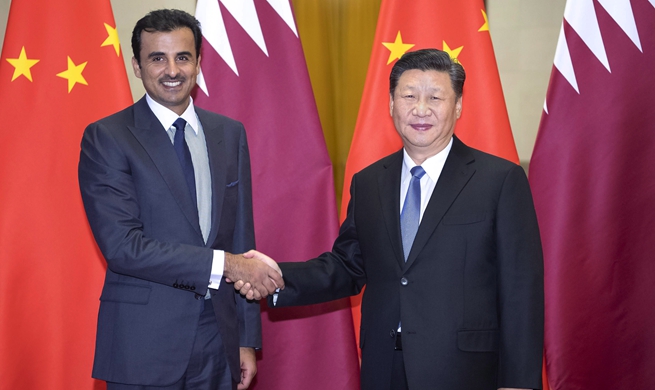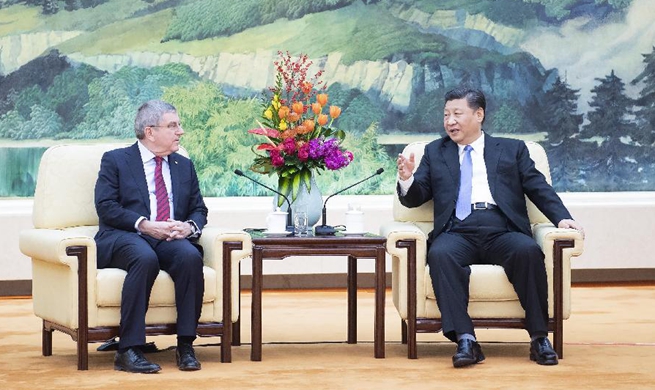by Gui Tao, Peter Barker
LONDON, Jan. 31 (Xinhua) -- Chinese consumers are the drivers of the global economy, one of the world's top economists has said.
"The most important thing for as far as I can see into the future, certainly at least halfway through the next decade, is the Chinese consumer," Lord Jim O'Neill, chair of the London-based think tank Chatham House, told Xinhua in a recent exclusive interview.
O'Neill came to global fame by coining the acronym BRIC to describe the four developing economies -- Brazil, Russia, India and China -- which he saw as being future powerhouses for global economic development in the 21st century.
A consistent believer in globalization and the central role of consumers and China to that effect, O'Neill said: "The Chinese consumer has been slowing for the past few months... that's what drives (globalization) ultimately unless we physically make it illegal to trade with each other."
"Globalization is driven by what consumers want," he said.
China, the world's most populous country, has been one of the main drivers and beneficiaries of globalization. Since the country started its reform and opening up under Deng Xiaoping in 1978, the Chinese economy has transformed and 500 million Chinese people, according to the World Trade Organization (WTO), have been lifted out of poverty.
"It is very unlikely that any other country could step in to drive global consumption," O'Neill said.
GLOBALIZATION WILL NOT BE DESTROYED
O'Neill has an insider's view of capital flow and the growth of national economies around the world, seen from the furnace of finance that fed off globalization and helped create the aspects of it that are seen today.
"I started my career in 1982, and from 82 until the late 90s every period of mini-crisis was essentially all about what the hell happens when the American consumer slows down," O'Neill explained.
With some thought, this led to a revelation for O'Neill about future global economic growth.
"I sort of realized in the 90s that the world could not permanently survived on the American consumer which we had done."
"I realized as early as that that the next 40 years might be about the Chinese consumer and it has been particularly this decade," he noted.
There is a downturn coming in the global economy, predicted by many economists in many countries, with evidence already emerging and underlined by organizations like the International Monetary Fund and the World Bank in their latest forecasts.
For O'Neill, these kind of downturns are expected, and reaction should not be overblown.
"Economic cycles are a fact of life. they will happen and maybe we're going into a downturn now, but that isn't going to destroy globalization -- it will interrupt it, but It won't destroy it," O'Neill said.
BREXIT WORRIES
The formal exit of Britain from the European Union (EU) is set for March 29, but there is still no clear form of how that Brexit will happen, or even whether it will take place on time or happen at all.
How does O'Neill think Brexit will end. "I have no idea, even now," he confessed.
O'Neill has been at the heart of British politics for some years, first as a government minister in the Treasury under David Cameron's coalition government, and latterly as an appointed member of the second chamber, the House of Lords.
He made his first speech in the House of Lords recently, in opposition to a hard Brexit.
O'Neill believes an exit from the EU without a deal, leading to Britain and the EU trading under WTO rules which would mean tariffs on many items, would be counter-productive.
He was particularly concerned about the impact on the auto industry, which is a dominant industry in Britain, employing 856,000 workers.
In 2017 they built 1.6 million cars, of which 1.3 million were exported to more than 160 countries, but the EU was the largest single market, and the auto industry accounted for 12.8 percent of total British exports.
"Some of the world's most productive auto plants are in the UK, but if we go out and trade under WTO rules, they won't stay that way because the profit margins are too thin," he added
"I'm sure there are other industries where that is true."













